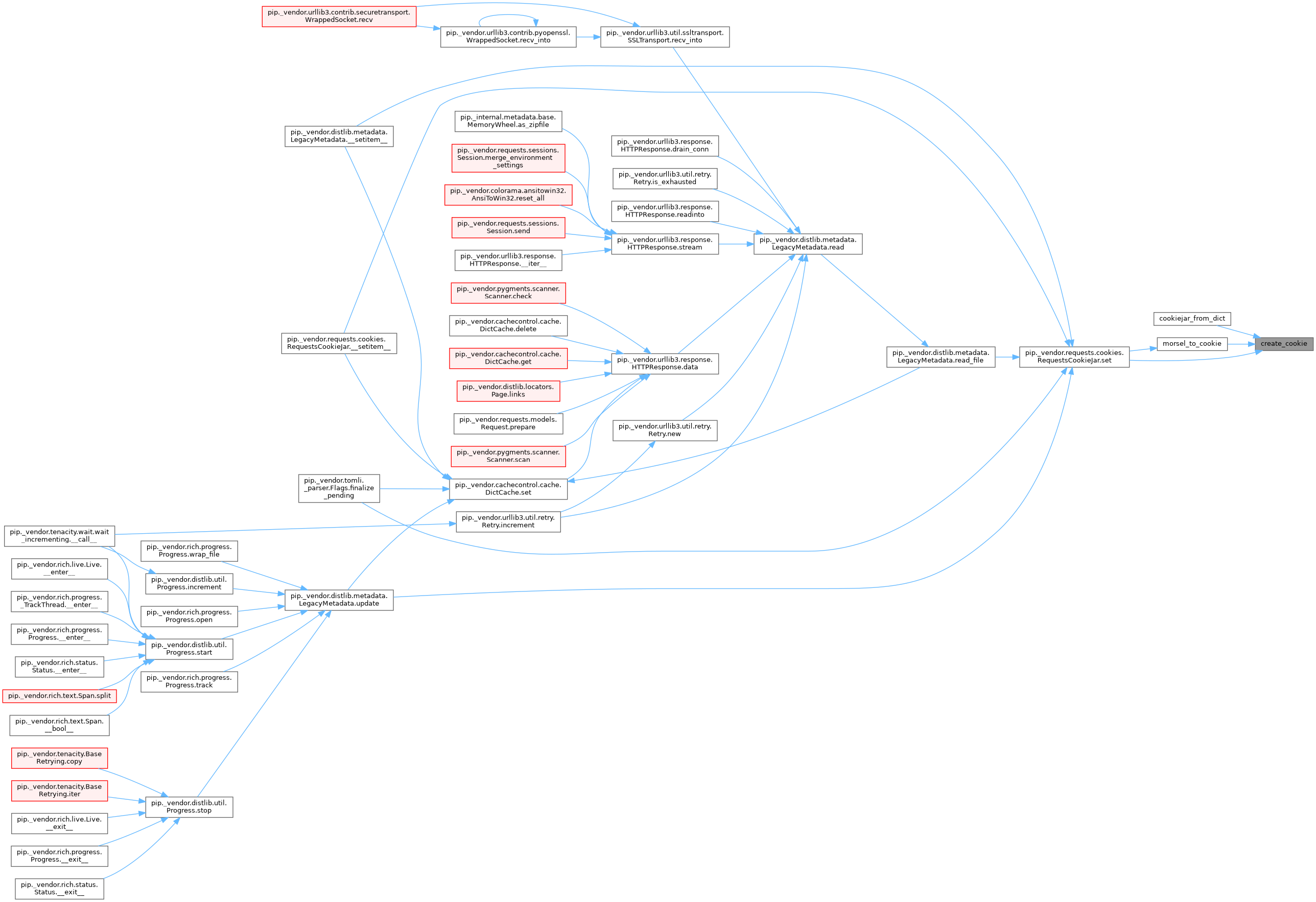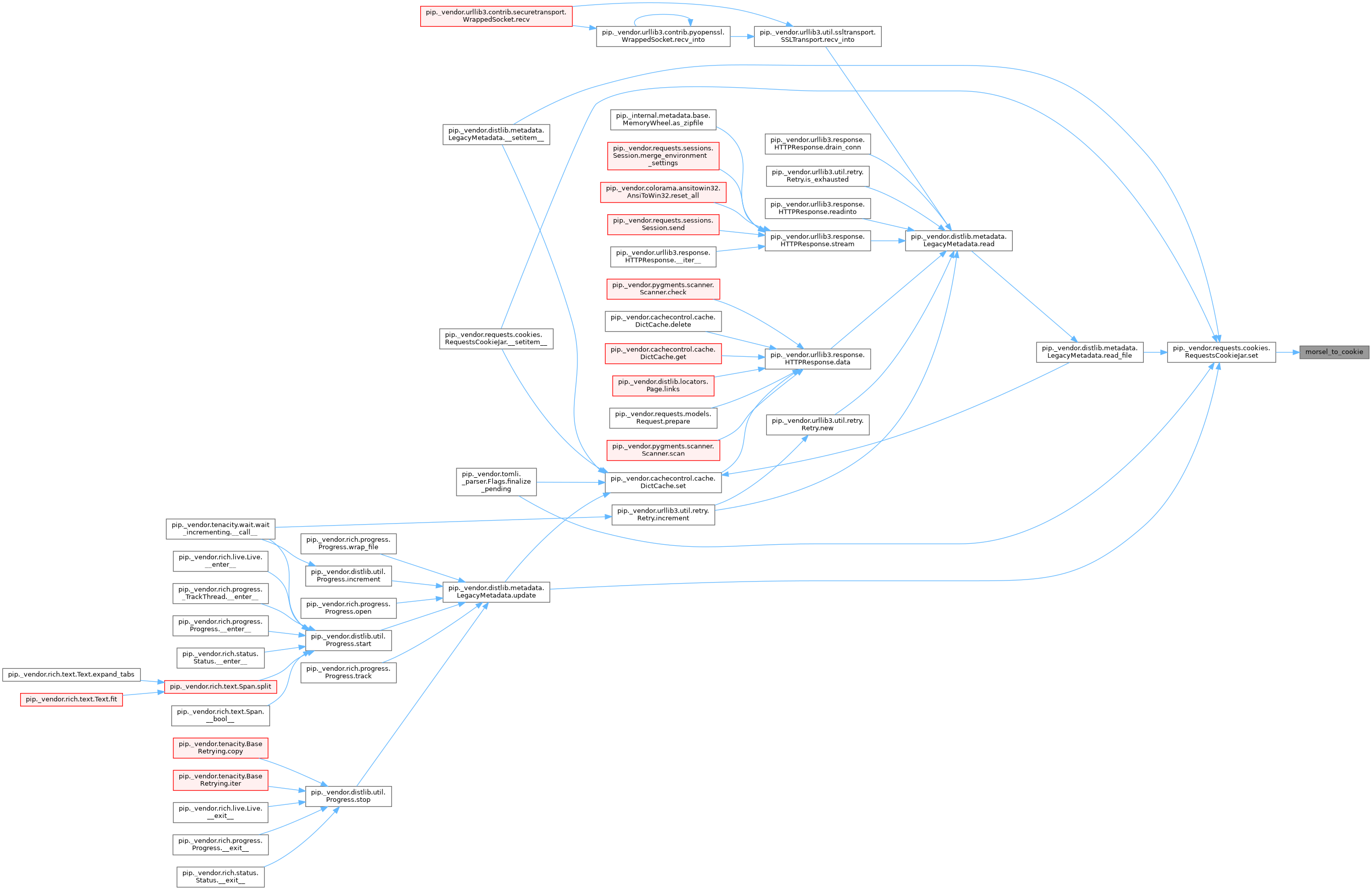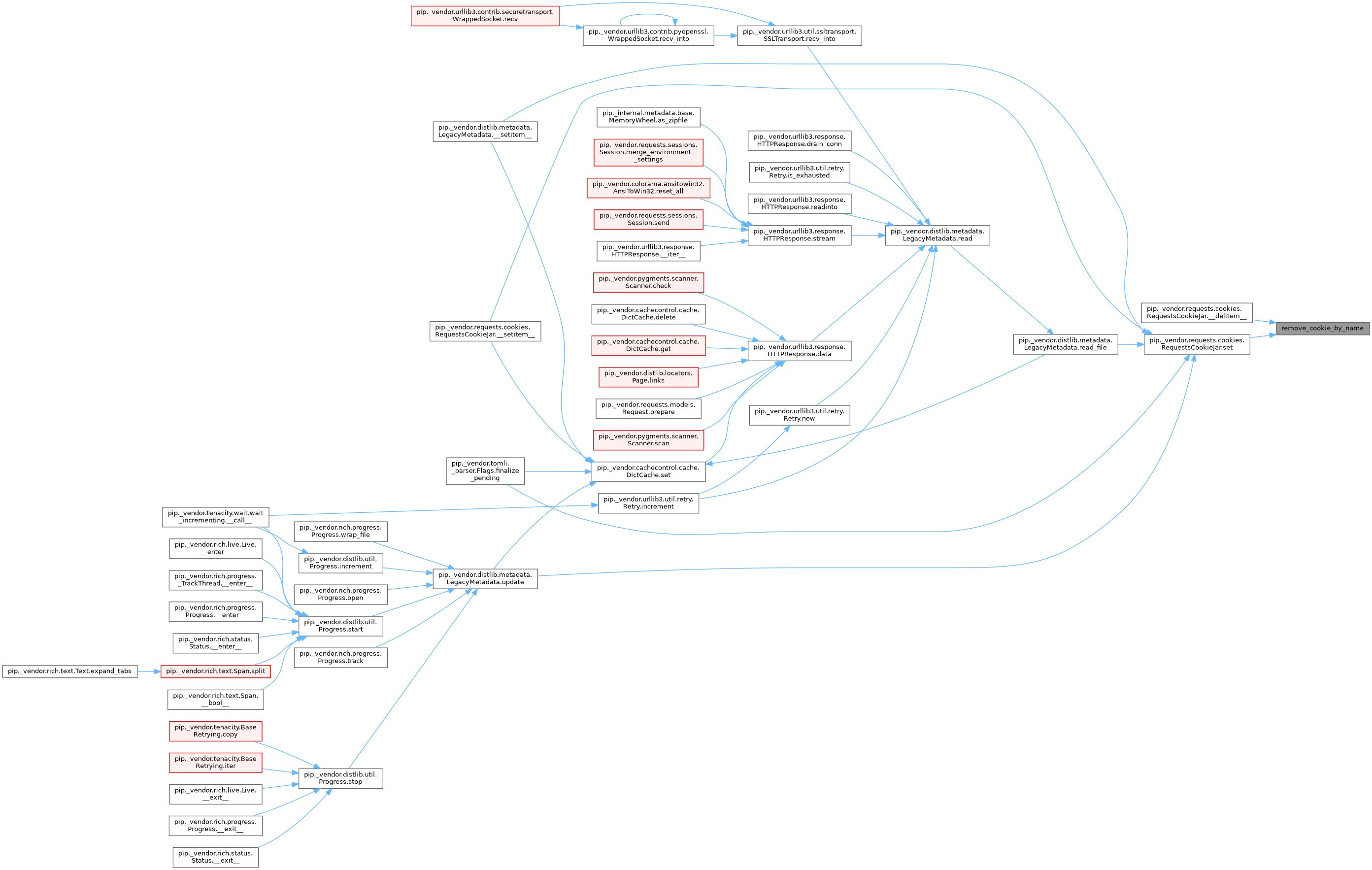Data Structures | |
| class | CookieConflictError |
| class | MockRequest |
| class | MockResponse |
| class | RequestsCookieJar |
Functions | |
| extract_cookies_to_jar (jar, request, response) | |
| get_cookie_header (jar, request) | |
| remove_cookie_by_name (cookiejar, name, domain=None, path=None) | |
| _copy_cookie_jar (jar) | |
| create_cookie (name, value, **kwargs) | |
| morsel_to_cookie (morsel) | |
| cookiejar_from_dict (cookie_dict, cookiejar=None, overwrite=True) | |
| merge_cookies (cookiejar, cookies) | |
Detailed Description
requests.cookies ~~~~~~~~~~~~~~~~ Compatibility code to be able to use `cookielib.CookieJar` with requests. requests.utils imports from here, so be careful with imports.
Function Documentation
◆ _copy_cookie_jar()
|
protected |
Definition at line 440 of file cookies.py.
References i.
◆ cookiejar_from_dict()
| cookiejar_from_dict | ( | cookie_dict, | |
cookiejar = None, |
|||
overwrite = True |
|||
| ) |
Returns a CookieJar from a key/value dictionary.
:param cookie_dict: Dict of key/values to insert into CookieJar.
:param cookiejar: (optional) A cookiejar to add the cookies to.
:param overwrite: (optional) If False, will not replace cookies
already in the jar with new ones.
:rtype: CookieJar
Definition at line 521 of file cookies.py.
References pip._vendor.requests.cookies.create_cookie(), and i.

◆ create_cookie()
| create_cookie | ( | name, | |
| value, | |||
| ** | kwargs | ||
| ) |
Make a cookie from underspecified parameters. By default, the pair of `name` and `value` will be set for the domain '' and sent on every request (this is sometimes called a "supercookie").
Definition at line 455 of file cookies.py.
References i.
Referenced by pip._vendor.requests.cookies.cookiejar_from_dict(), pip._vendor.requests.cookies.morsel_to_cookie(), and RequestsCookieJar.set().

◆ extract_cookies_to_jar()
| extract_cookies_to_jar | ( | jar, | |
| request, | |||
| response | |||
| ) |
Extract the cookies from the response into a CookieJar. :param jar: cookielib.CookieJar (not necessarily a RequestsCookieJar) :param request: our own requests.Request object :param response: urllib3.HTTPResponse object
Definition at line 124 of file cookies.py.
References i.
◆ get_cookie_header()
| get_cookie_header | ( | jar, | |
| request | |||
| ) |
Produce an appropriate Cookie header string to be sent with `request`, or None. :rtype: str
Definition at line 140 of file cookies.py.
References i.
◆ merge_cookies()
| merge_cookies | ( | cookiejar, | |
| cookies | |||
| ) |
Add cookies to cookiejar and returns a merged CookieJar. :param cookiejar: CookieJar object to add the cookies to. :param cookies: Dictionary or CookieJar object to be added. :rtype: CookieJar
Definition at line 542 of file cookies.py.
References i.
◆ morsel_to_cookie()
| morsel_to_cookie | ( | morsel | ) |
Convert a Morsel object into a Cookie containing the one k/v pair.
Definition at line 492 of file cookies.py.
References pip._vendor.requests.cookies.create_cookie(), and i.
Referenced by RequestsCookieJar.set().


◆ remove_cookie_by_name()
Unsets a cookie by name, by default over all domains and paths. Wraps CookieJar.clear(), is O(n).
Definition at line 151 of file cookies.py.
References i.
Referenced by RequestsCookieJar.__delitem__(), and RequestsCookieJar.set().
